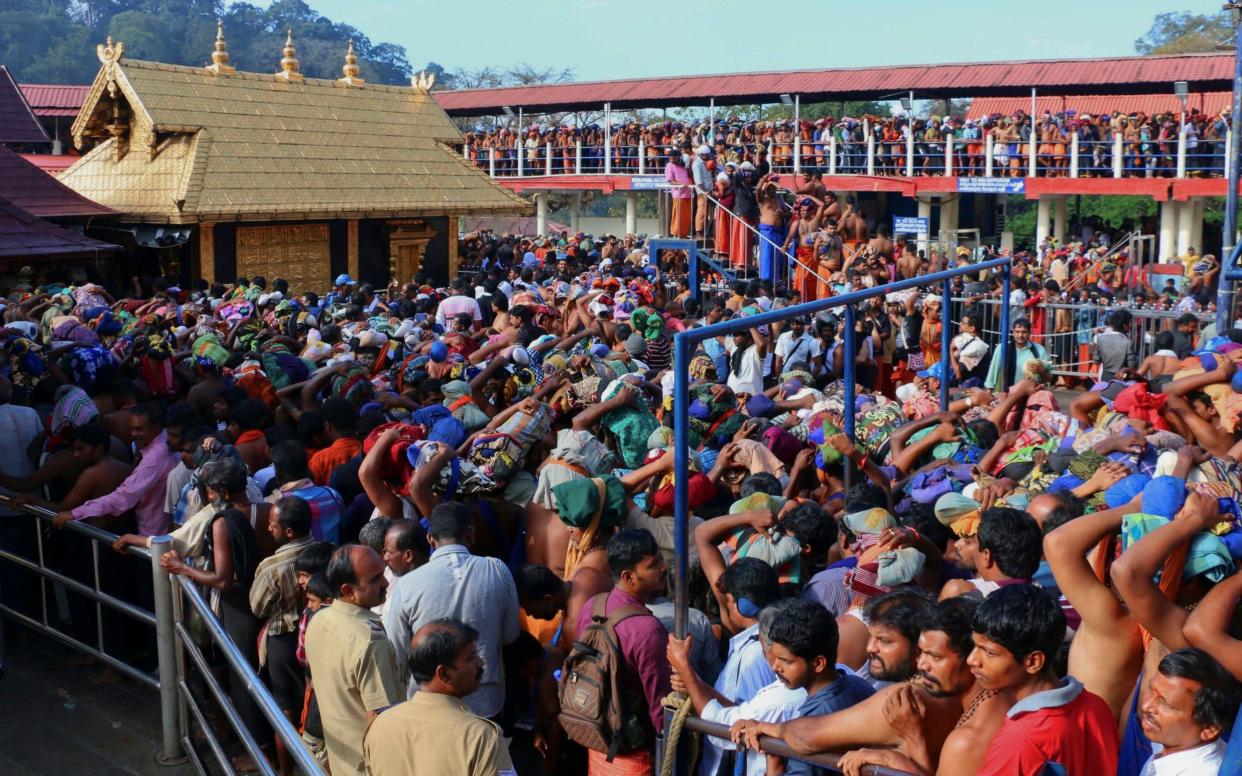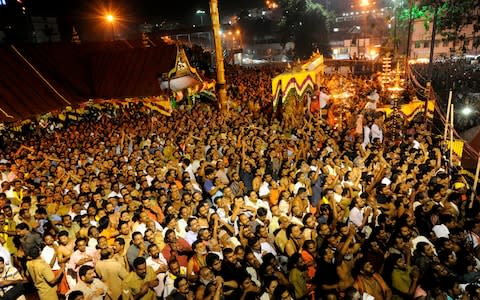India's top court revokes ban on women 'of menstruating age' entering Hindu temple

India's Supreme Court has ruled that one of the country's holiest Hindu temples must open its doors to women. The Sabarimala temple in Kerala had banned women and girls of "menstruating age" - defined as from 10 to 50 - from entering the place of worship.
The precedent could affect hundreds of temples across India that currently do not allow women for reasons ranging from issues around “purity” to them being barred when a guru or senior priest is in residence.
The Supreme Court on Friday announced that it was the right of all women to enter the Sabarimala temple in Kerala, in a final judgment following long legal battles by rights groups.
Women and girls were previously barred from the famous temple in the southern Indian state on grounds that the deity, Lord Ayyappa, was celibate and could be angered.
The court ruled four to one in favour of making gender discrimination unlawful, with the only woman on the bench, Justice Indu Malhotra, dissenting. Chief Justice Dipak Misra said devotees of Ayyappa do not constitute a separate religious tradition, with three other justices concurring.
He added that: "the right to practice religion is available to both men and women".

Supporters of the ban argued that it had been in place from "time immemorial" and originally came about because worshippers were required to fast for 41 days before undertaking the pilgrimage to Sabarimala - something menstruating women were not encouraged to do for physiological regions.
Activists welcomed the judgment under Justice Mishra, who has overseen a series of progressive, liberal verdicts in the last few months - from striking down anti-gay laws to decriminalising adultery - before he retires next week.
Other sites around India that exercise exclusionary practice include the Haji Ali Mosque, in Mumbai, which permits women into its grounds but does not allow them close to the grave of the 15th-century Sufi saint after whom the mosque is named.
Notable Hindu temples that bar women in some form include the Patbausi Satra, Assam; the Lord Kartikeya Temple, Pushkar; and the Ranakpur Temple, Rajasthan. All of them could now fall foul of the ruling.

